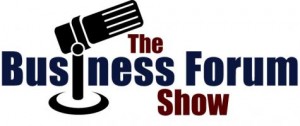Rollover Business Startups: The Business Forum Show, May 28, 2014
Continuing with this month’s theme of alternative uses of one’s retirement funds, this week Kevin Hunter and I discussed the use of 401(k) plans to fund a new business, a practice commonly known as “Rollover Business Startups” or “ROBS”
Attorney Thomas R. Wechter, in an article entitled Rollovers as business startups: A guide to using retirement funds to start a business, sets forth five sequential steps which comprise the basic structure of a ROBS transaction:
1. The entrepreneur forms a new corporation, usually a C corporation.
2. The corporation adopts a prototype 401(k) plan that specifically permits plan participants to direct the investment of their plan accounts into a selection of investment options, including employer stock; usually the plan allows employees to roll over or to execute a direct transfer from an existing qualified retirement plan account such as a 401(k) plan with a former employer or an IRA to the new plan and to use the rollover proceeds to purchase the employer’s capital stock. At this point, the corporation usually has no employees, assets, or business operations, and may not even have received a contribution to capital to create shareholder equity.
3. The entrepreneur becomes the corporation’s only employee, elects to participate in the newly created 401(k) plan, and directs a rollover or trustee-to-trustee transfer of retirement funds from another qualified retirement plan account plan or IRA into the newly established corporate plan.
4. The entrepreneur then directs his or her account to purchase the newly issued corporate stock at par value. Usually the employer stock is valued to reflect the amount of plan assets that the entrepreneur wishes to invest in the purchase of the new business. In early ROBS arrangements, the plan was amended after the purchase of the corporation stock to provide that other participants could not roll over their retirement funds from another qualified retirement plan and could not purchase the corporation’s stock with their rollover funds. These types of amendments are no longer made since the IRS pointed out that the amendments may violate certain qualified retirement plan requirements.
5. The entrepreneur then directs the corporation to use the funds from the sale of the stock to purchase a franchise or an existing business, or to begin a new business or venture.
It should be noted that ROBS have attracted IRS scrutiny in recent years, as some creative thinking entrepreneurs, once they purchased their shares of company stock through the 401(k) plan, had the plan amended to prohibit other employees from doing likewise.
Archived segments are available by visiting The Business Forum Show page of my website, and be sure to tune in live (or listen to a podcast recording of the show) here.

Hi Jeff, you wrote a great blog post a few years back on the “Ten Common Mistakes Self-Directed IRA Investors Make.”
There was related topic that I would appreciate clarification on. I am in a partnership (a California corporation) that is taking out a construction loan for a real estate development project. The bank making the loan wants each officer to sign a personal guarantee in the event of a default on the loan. My question is if I sign this PG, is my self-directed roth IRA subject to the bank’s efforts to collect on their loan? In other words, can they go after this “personal asset” if I sign a PG with them?
Thanks in advance, Mitch
Mitch: thanks for the question. That is a matter of state law regarding exemptions from judgment. In Minnesota, a certain amount of retirement accounts are exempt from collection, but there is no “blanket” exemption. I can’t say that I’m well-versed in California debtor-creditor law so I would recommend you speak with someone who knows more on this subject. I hope this helps.